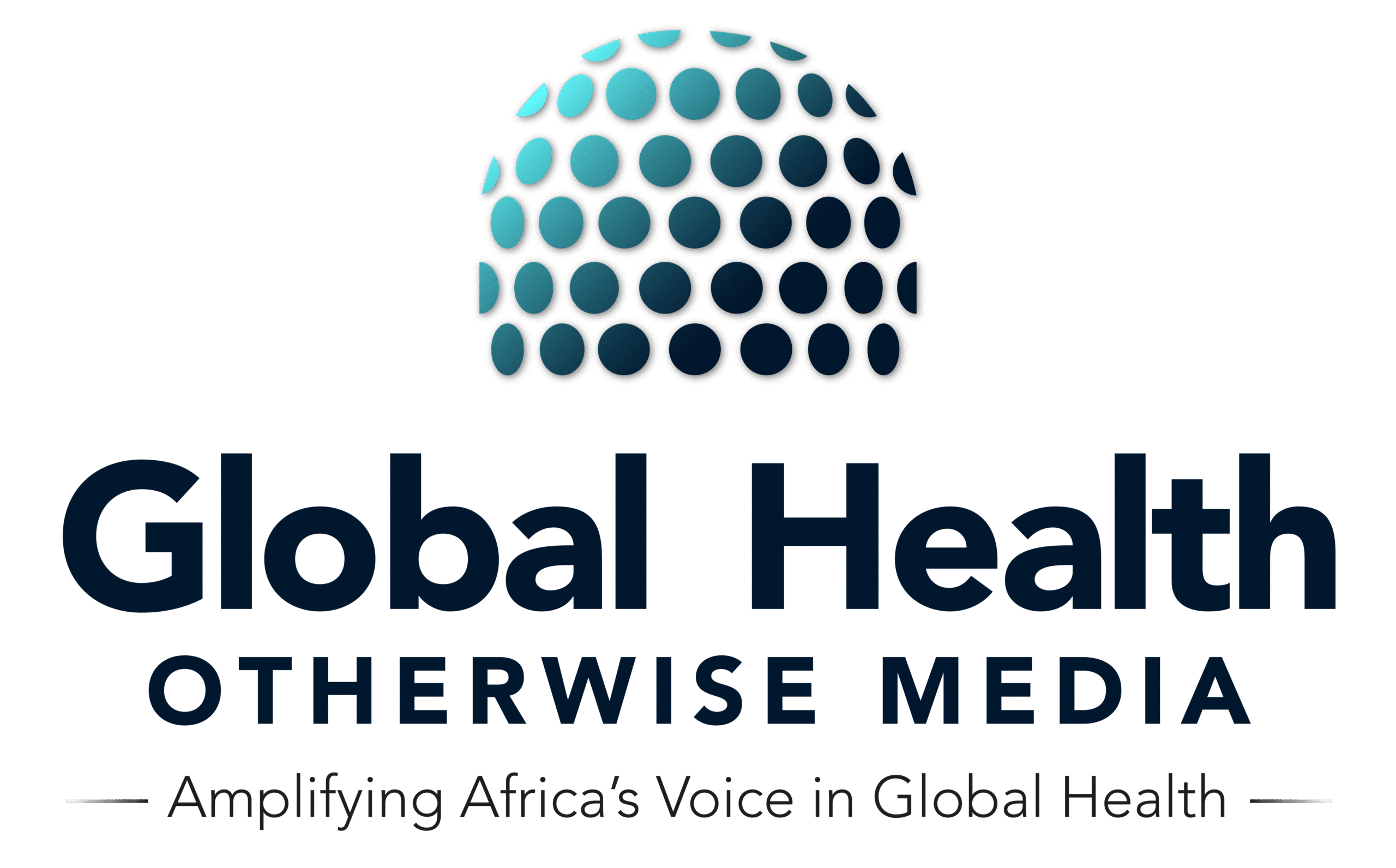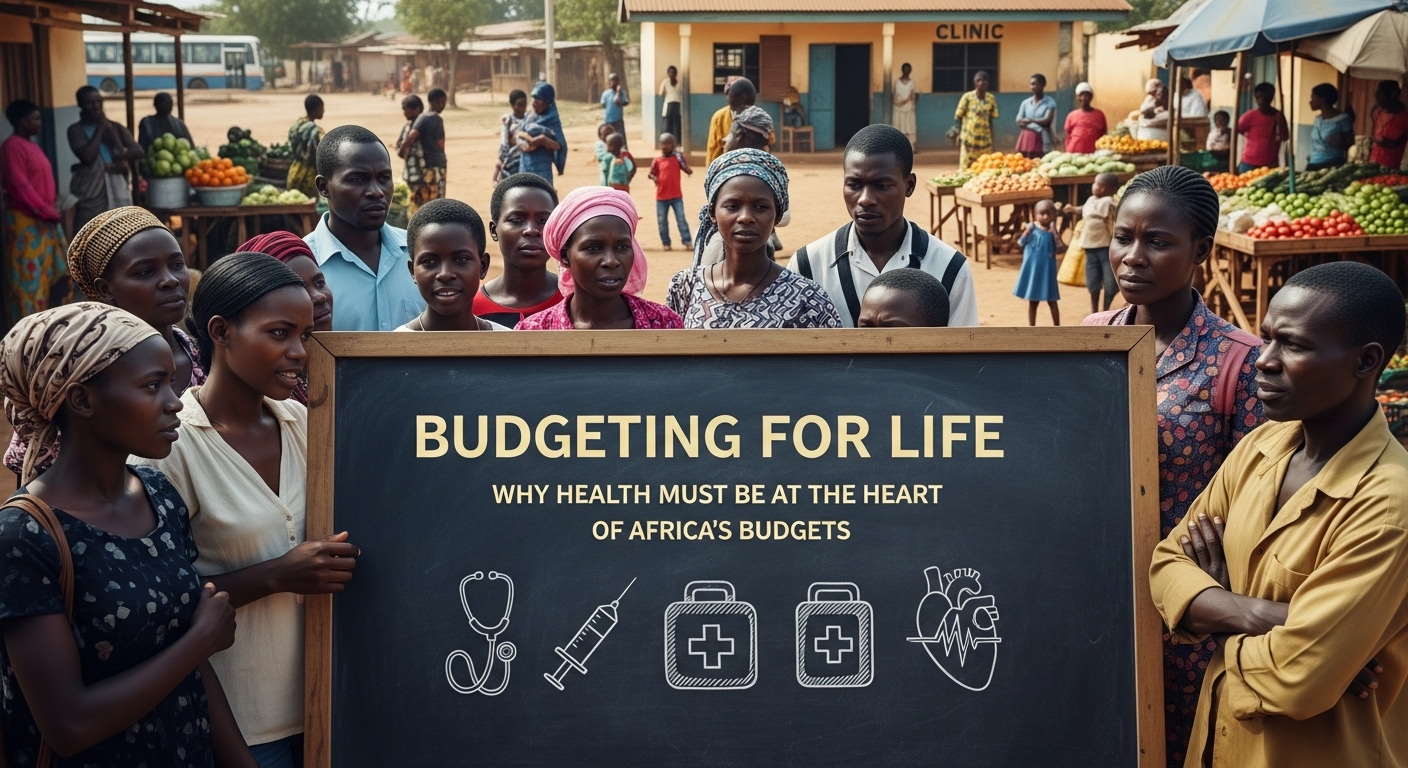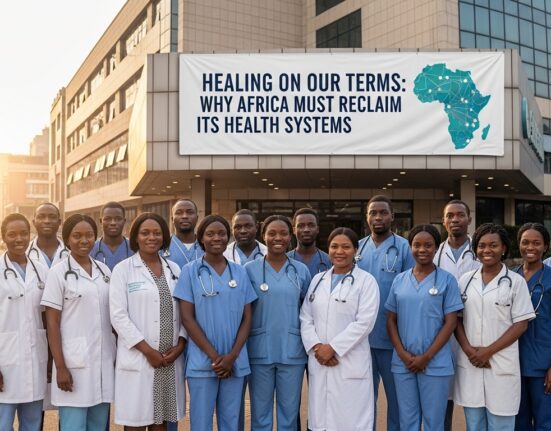It starts with a cough, a dry, stubborn cough that keeps a five-year-old boy awake through the night. At dawn, his mother wraps him in a faded kitenge, hoists him onto a bodaboda, and sets off on a 14-kilometre journey to the nearest health centre. The ride is bumpy, the hope desperate. Yet, when they arrive, there is no medicine. No test kits. The nurse on duty looks apologetic, not indifferent; she simply has nothing to offer. With a quiet nod, she sends them home. No diagnosis. No relief. Just hope that the child makes it through another night.
This is the reality across Africa, where countless scenarios like this unfold daily: empty dispensaries, maternity wards without essential supplies, hospitals without running water, and dedicated doctors protesting unpaid salaries. But the problem isn’t always a lack of resources; more often, it’s about how those resources are allocated.
Healthcare systems in Africa are not collapsing because of poverty, but because of misplaced priorities and while a nation’s budget might look like numbers in a spreadsheet, but it’s more than that. It’s a mirror. It reflects what a nation values, who it chooses to protect, and who it is willing to neglect.
A nation’s health budget is thus a moral declaration that reveals a country’s stance on equity, justice, and care for its people. Rwanda, for instance, though not among Africa’s wealthiest, has built one of Africa’s most effective community-based insurance systems. Its Mutuelles de Santé, a model blending household premiums, government support, and donor aid, has achieved nearly 90% coverage. This stands as clear proof that with the right priorities, progress is possible.
By contrast, Nigeria, Africa’s most populous nation, allocated just 5–6% of its national budget to health in 2023. This falls far below its 15% pledge made in the 2001 Abuja Declaration. Sadly, Nigeria is not alone. Most African governments remain stuck below the 10% threshold, while allocating significantly more to debt servicing and defense. Yet bullets cannot treat malaria, and loan repayments cannot magically deliver vaccines.
The cracks became glaring during the COVID-19 pandemic. The crisis exposed how fragile our health systems already were. We witnessed oxygen shortages in Kampala, nurses protesting in Accra, and families in Lusaka crowding pharmacies for overpriced medicine they could no longer afford. The system buckled under the pressure because we collectively failed to build resilience when we had the chance. The pandemic reminded us that a crisis doesn’t create failure; it reveals it.
Despite this wake-up call, many African governments have slipped back into complacency, treating the pandemic as an exception rather than a warning. The hard-earned lessons about preparedness, investment, and equity are already fading, as if the cracks we saw were merely temporary rather than systemic.
As many health economists have pointed out, investing in health is not an act of charity. It is a long-term strategy. Healthier populations are more productive, better able to withstand economic and environmental shocks, and more likely to thrive. Think of the ripple effect: a mother who can give birth safely, a farmer who doesn’t lose weeks to malaria, a teacher who stays in the classroom instead of in line at the dispensary. These are not just health wins, they’re economic wins.
That being said, there are encouraging signs. In Kenya, counties that have increased spending on primary healthcare have seen a rise in skilled birth attendance and immunization coverage. Ghana’s National Health Insurance Scheme, despite its growing pains, represents a significant step toward equity. And in Ethiopia, a national network of health extension workers has brought basic care to millions in remote communities.
Clearly, Africa does not need to mimic Scandinavian welfare models or European insurance systems. What it needs is belief—in its people, in their right to health, and in the power of local solutions. The Abuja Declaration must be more than a signature on paper. Two decades is long enough to honor a promise. Yet 20 years on, only a few countries, have met the 15% health spending target.
Recent findings from regional health financing studies suggest that low-income African nations could dramatically close the Universal Health Coverage (UHC) gap by gradually increasing health spending by even just 1.5% of GDP annually. This may seem a modest increment, but it could prove to be the lifeline needed to adequately stock rural clinics, retain vital medical staff, and significantly improve emergency response capabilities
To achieve this, then budgets must fundamentally shift. Political will must harden. And most importantly, communities must rise to demand what they rightfully deserve: that governments cease treating health as an afterthought and instead recognize it as the foundational bedrock for everything else – education, agriculture, productivity, and even peace. For when health systems collapse, everything else inevitably follows.
We cannot outsource our health. And we cannot continue to depend solely on donor generosity. Africa’s future depends on whether its leaders choose to see health as a fundamental human right and a commitment to protect life and dignity, not just a budget line to be trimmed. Because when a nation budgets for health, it budgets for life.



